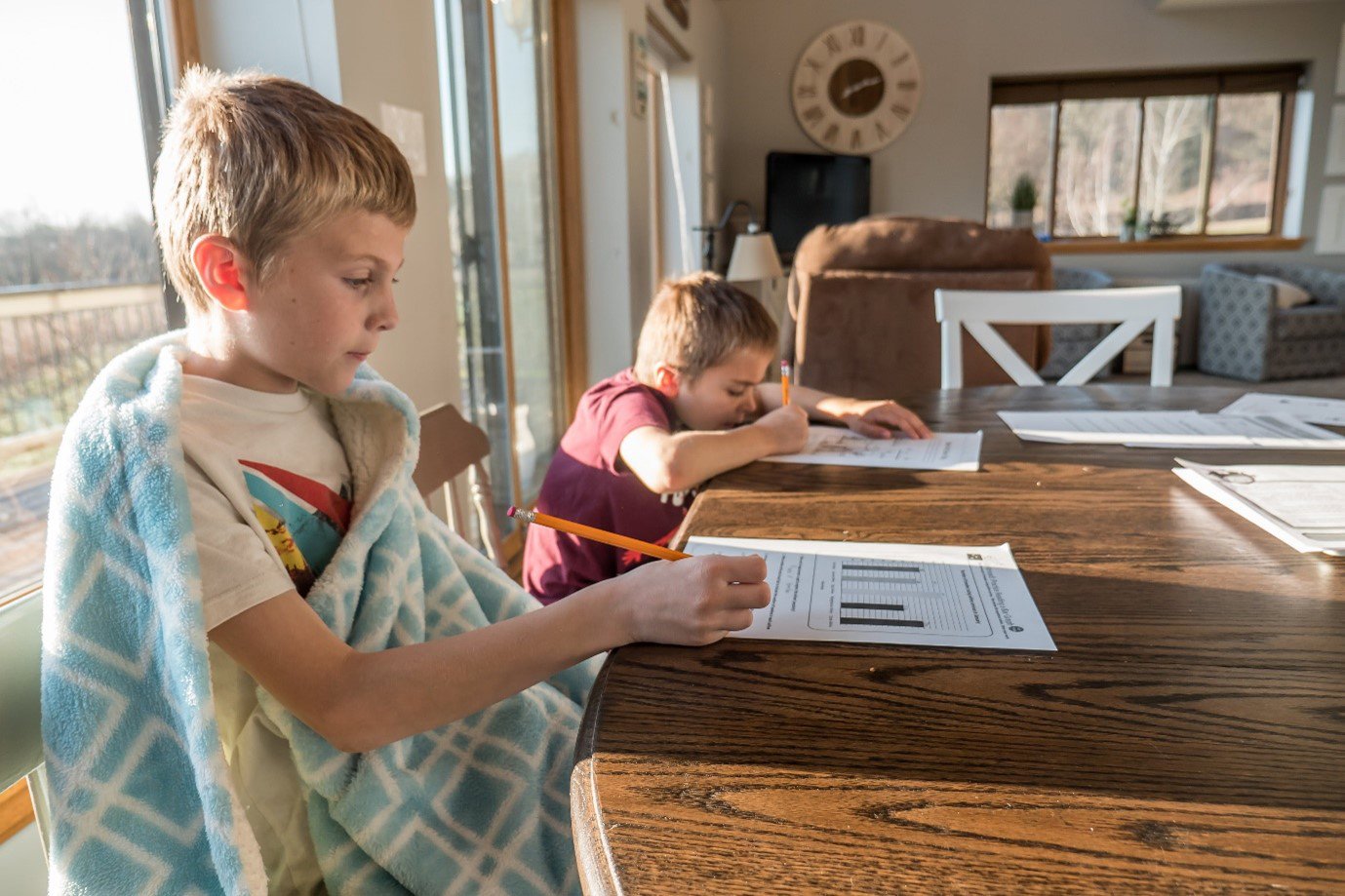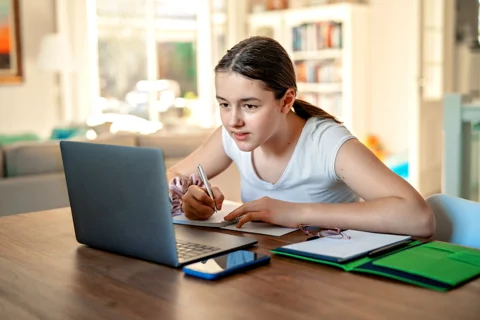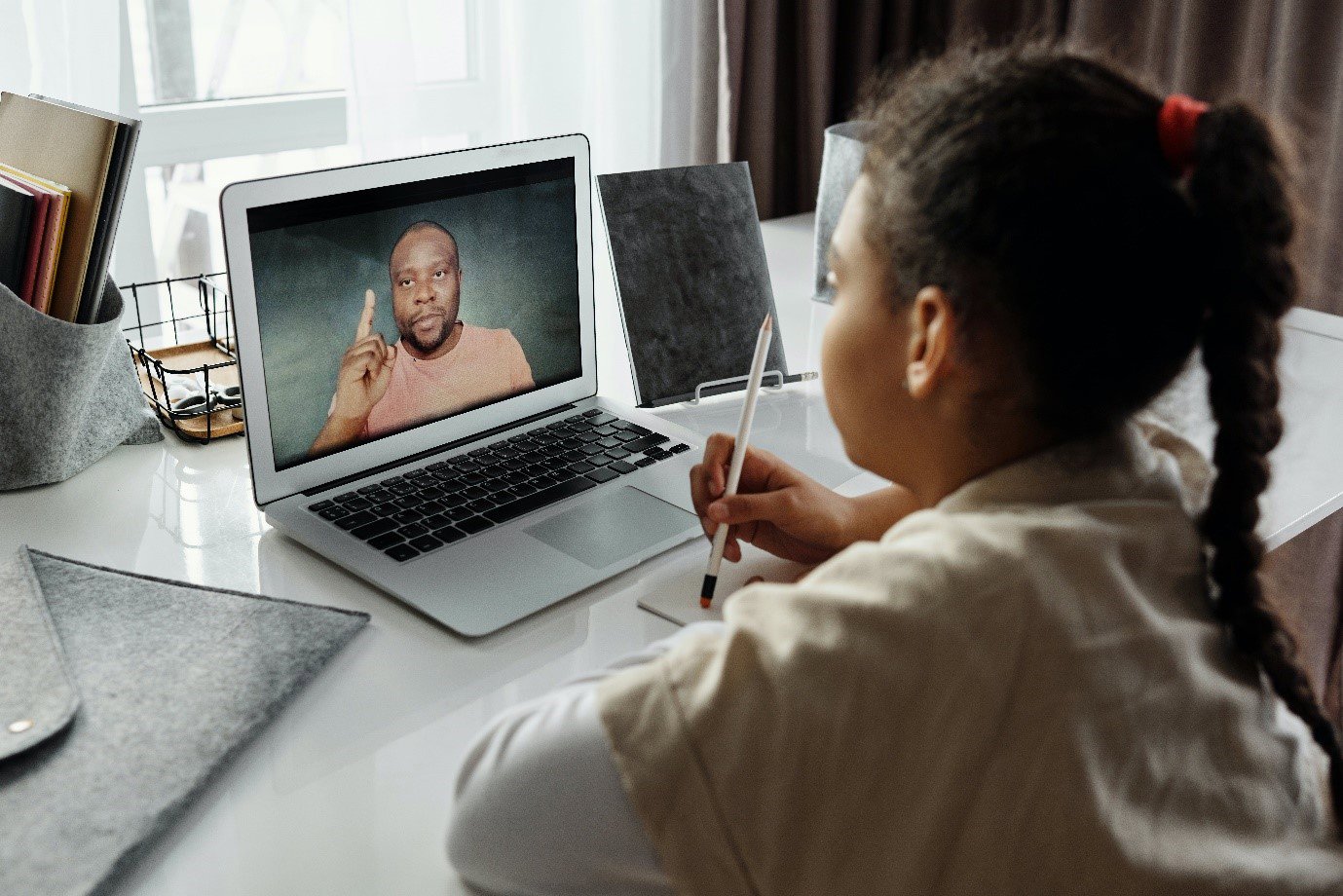What is remote education?
Remote education is the process of teaching and learning performed at a distance, rather than within the physical classrooms. In traditional classrooms, the teachers and pupils come together in person, whereas remote education means that the pupils are in a separate location from their teacher, such as at home.
Introduction remote learning during the pandemic
The former Secretary of Education, Gavin Williamson, put these changes in place from 22 October 2020 until the end of this school year in the summer of 2021. This hasn’t been reviewed since 2021.
What Schools did this apply to?
It applied to all of the following schools in England:
- Community Schools
- Community Special Schools
- Foundation School
- Foundation Special Schools
- Voluntary Aided Schools
- Pupil Referral Units
- Non-maintained special schools
- Academy Schools
- Alternative Provision Academies
Independent Schools, where they have registered pupils whose education is funded by the Local Authority

What was the purpose of remote learning?
The intention with remote learning was to allow pupils to continue their normal curriculum from a distance. This serves the purpose of having as little disruption as possible. Remote learning could be a solution for a variety of reasons, and not just the Covid-19 pandemic. For example, children who are required to be away from school for an extended period of time.
Do I need technology for remote learning?
Technically, there is no requirement for technology to complete remote learning. While remote learning can be done via video call, it can also be done in the form of printed work though technology obviously transformed the ability to teach remotely .
You should always speak to the school first if they haven’t provided your child with the support they need. If your child doesn’t have the provision to carry out their work, then ask the school what they can provide for your child at home.
Schools were working hard to adapt quickly to the changing law around the coronavirus restrictions. But some children may still require an element of remote learning in some situations so the lessons learnt remain applicable.
Has remote education extended beyond the Covid-19 pandemic?
In March 2022, the Government published non-statutory guidance for schools and educational establishments regarding remote education. It outlines how school can help offer remote education when it’s not possible for a pupil to attend in person.
Whether it’s a one-off case for one pupil in particular or an issue that relates to all pupils, the guidance offers support for schools in any situation where remote learning may be required.
Will remote education be more common in the future?
When it comes to primary and secondary education, the Government states that remote education should only be considered if all other options fail. In other words, remote education should be a last resort. It’s advisable to only allow pupils to do remote education if attendance in person is truly impossible.
Here’s some examples of when remote learning could be considered:
- School closures
- School restrictions on attendance in person
- Individual cases where a pupil is unable to attend school but is able to complete their schoolwork and learn
What’s the benefit of remote education?
Outside of the Covid-19 pandemic, there are many benefits for allowing pupils to complete their learning remotely, such as at home. In cases where pupils are absent from school, but they are able to still complete their work, it allows pupils to stay connected to their school, teachers, and peers.
When to choose remote learning
There are plenty of reasons why remote education could be an option. Whether the school is closed due to unforeseen circumstances or there’s restrictions in place such as lockdown.
Other causes would be down to individual cases, where a pupil is unable to continue attending school for a certain period of time, but they can still learn. Some of these reasons could be:
- Short-term illness
- Surgery or medical treatment recovery
- Injuries where school attendance may disrupt recovery
- Special Education Needs or Disabilities
- Mental health issue
Should there be a time limit for remote education?
The Government report on non-statutory guidance for schools regarding remote learning states that setting a time limit would be a good thing to implement. It offers advice that school schools should set a time limit to review the case, with an aim of allowing the pupil to return with the appropriate support in place.
Can a child receive free school meals during remote learning?
If a pupil is eligible for receiving free school meals but they are also completing their schoolwork remotely, then this should be considered internally within the school. The school should work with their catering team to provide lunch parcels. If lunch parcels aren’t possible, then a food voucher may be something to consider as an alternative. This will make sure that all pupils are continuously supported even if they are unable to attend school.
SEND pupils and remote education
If a pupil with SEND is unable to attend school in person, then remote education should be considered as a last resort and only if it is suitable. The pupil’s teachers will be aware of the child’s needs to make sure that they are being met while still having access to their normal curriculum.
The school should also be aware that some SEND pupils may not be able to access remote learning without supervision. When this is the case, the school should work together with the parents or carer to make arrangements that allows the pupil to successfully access remote education.
Solving problems with remote education for parents
If you have spoken to your school, but your child still hasn’t received the provision they need for their education then we might be able to help you.
Get in touch with our Education Solicitors today for advice, where we’ll discuss your case and the options that are available to you. We’ll make sure to explain everything in plain English, so you aren’t overwhelmed with legal jargon, allowing you to access all the support and information that we have.











